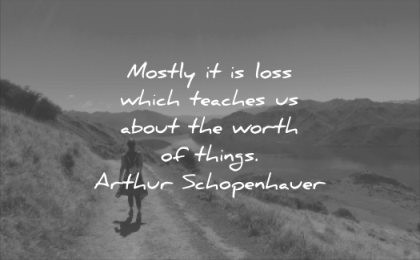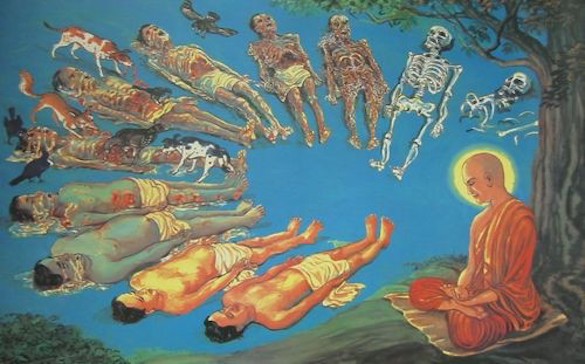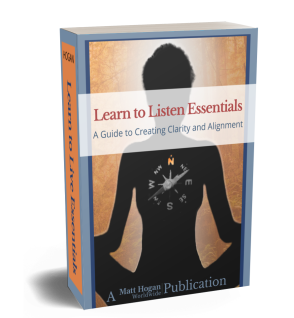Death reminds us to appreciate life.
It reminds us to slow down and see what is true.
It reminds us of the preciousness of our existence.
It reminds us of what matters and where we hold ourselves back.
It reminds us to be willing to question everything.

This week two family member’s passed away, within 12 hours of each other. On the morning of November 3, my aunt passed away after being in hospice care for some time.
Twelve hours and fifteen minutes later, her husband, my uncle, passed away. He had been her primary caregiver for some time, and recently discovered a tear in his heart.
What started as a tear quickly became other issues that led to him being on a ventilator and dialysis. His passing came on quick and out of nowhere.
He was still under when his wife passed, and a conversation never occurred where he learned of it. They had been together since high school.
The ripple effect of their deaths are being felt through my entire family. For my father, he lost his brother. For my grandmother, the loss of a son.
For my brother and I, concern for our family, while sitting in the sadness of their passing. I find this a time to make new choices about how I relate and respond to death, the inevitable expression of life.
Death is not a new experience for me.
My grandfather passing away when I was 12, devastated me for years. In 2004, I attempted to take my own life, and nearly succeeded with a bullet.
In 2013, my sister was run over and killed while walking home. And my cousin, who was pregnant, was killed the same year. In my youth I was witness to a homicide between husband and wife.
Death is not foreign to me.
When I’m honest, though, it still scares me. I’m not ready to leave this Earth, and at the same time, I know I will. Once again, this week, I’m reminded of this fact.
Maraṇasati is a Buddhist meditation focused on death awareness. Many Buddhists meditate on their death, daily. There is an appreciation of this given part of life, and a call to live while here.

As death comes into my life once again, new choices become available. Starting with my relationship to life and death. And going deeper into how the inevitable shapes my ways of seeing and navigating this world.
Where does the opportunity exist to further let go of that which binds me? The perceptions of limitations, doubts, judgements, blame, and disconnection from others.
Where is the opportunity to lean more into life? To feel it and appreciate it more in depth.
When my grandfather passed, it was pure despair and anguish that emerged from within me. I collapsed into myself and then wanted to fight everything and everyone from my pain. At 12 years old, I wanted to die, because the pain was that intense.
When my sister and cousin died, I deflected the experience. I dove deeper into my corporate work, as a safe haven. I loved my work, and it was easy to hide there. And yet, I was in incredible pain, unwilling to feel it.
Each of these experiences planted a seed unbeknownst to me.
That seed began to sprout in early 2017. It began to bloom in 2018 when I was traveling in the Philippines. The seed that was blossoming was one of impermanence.
A recognition of this finite time, at a level that goes beyond simple thought. At that time, I began to feel in my bones that the clock was ticking. It was clear to me that it was time for change in how I perceived and experienced life while choosing my way forward.
It was a time where the sometimes obnoxious shouting of you only live once became active within me. Yet, it was not about living with a forgoing of personal responsibility, in a collective sense.
It was a redefining of what personal responsibility meant to me. And it’s my personal responsibility to choose my responses to life. It’s my personal responsibility to decide what I will believe, and the path I will create.
It was this trip when I decided to go full in on my business, leave the corporate world behind, and the US for some time. An old story of who I believed myself to be and what was possible died during my time abroad.
I have yet to experience physical death. But, I have experienced many identity deaths. Over and over again I have experienced the falling away of outdated stories of who I believe myself to be.
With each passing, a kinder, more easeful, loving and confident person emerges.
With each passing, a willingness to lean further into perceived risk becomes easier.
With each passing, an experience of internal freedom deepens. The more I let go of the story I have convinced myself of, the freer I have become.
My sister’s and cousin’s deaths taught me lessons that came later. In the moment of their deaths, I deflected and avoided three important experiences.
1) I did not stop long enough to honor and celebrate the beauty of these two amazing young women
2) I did not stop long enough to allow myself to grieve the gap left in my life and my heart
3) I did not allow this experience to be one to reflect upon how I was choosing to live my life, and make adjustments
I couldn’t let myself feel how much their deaths terrified me.
It seemed easier to keep a distance from the grief that was inside of me. It felt safer to keep moving forward without taking a look at the preciousness of life. Without looking at how I was living.
“We are paradoxically more powerful and fragile than we know” — Anonymous
It has been in the passing of my Aunt and Uncle that I see my own unprocessed grief. Unprocessed from my sister and cousin’s passing. This further reminds me how important it is to honor our emotional experiences.
And to not shut down and numb out when we are faced with the inevitable. A reminder of our own mortality.
I’ve been taking more time to honor and celebrate these two. And in this time to myself, it has created a deeper appreciation of life cycles. To have life, we must have death.
They are linked. Point blank.
And it’s hard.
It’s hard to own our mortality.
It’s hard to feel in our bones that we can cease to exist in a blink of an eye. It can be scary to imagine a world where we are not in it.
And yet, the denial of our own death is what often keeps us living as if we are never going to die. We create a box that feels safe called ‘living’, and often not dare consider much beyond it.
Many of us cringe at the mention of death. Many of us will acknowledge that we only live once, then go back to living the same way without a second thought.
We may go right back into a way of living that we know deep down is not right for us.
No matter our response, the seed of impermanence exists within us all. Many of us know but never speak of it.
Or, if we do, don’t feel the fullness of that reality.
It’s one thing to speak of conceptual death. It’s another to feel the realness that this body will cease to function one day.
Recently I was in conversation with a client and we were talking about the future of his business. He shared what he wanted to create in the next 3–5 years.
The leaders I work with are clear on a heart driven path. It’s from here that their ideas and impact emerges. They know it. I see it.
My role is helping them move beyond the box known as ‘life’ and ‘me’. First, we must see the box.
Listening to him speak about his vision, it’s clear how important it is to him. It connects his heart’s desires to see a greater experience of life in the world. It brings heart, families and communities to a greater place of life.
I could feel the congruence of his plans. I could also hear words not shared. After he shared his plan, I asked a simple question, ‘why 3–5 years?’
Creating big change takes time. I get that. Yet, it’s often not as much as believed. And often what is in our way is less about time, and more about what we perceive is possible.
We can trace these perceptions of possibility to the story believed about ourselves. We can take it further and connect it back to our own relationship with our mortality.
When we are looking for what seems logical.
When we are looking for the incremental.
When we are looking at what seems reasonable.
Often behind those statements many use (including myself), is fear.
For the question I posed to my client, what I wanted to know is how he came to decide this timeline. What was the line of thinking that led him to this conclusion?
What resulted from this simple question were new realizations for him. He shared with me how he was seeing the constraints he placed on what he wanted to create. He became less trenched in a story of what is reasonable, possible, and logical.
He had created a story about what was and was not possible in that timeframe, and held firm to it. Until questioned.
In the questioning we begin to see where we are fighting for constraints on possibility. We begin to see the assumptions we make about time.
How much we have of it. And how much time we spend on what does not matter at the end of the day. We are masters of distracting and fooling ourselves. We are quite imaginative, and use our minds and energy in ways that limit rather than create.
As we grow in recognition of our own mortality, we begin to appreciate it. When we begin to honor and appreciate life and death, new choices will emerge. When we have come to face the unfaceable, we can free ourselves to live.
I stay in a process of humbling myself to the fact that one day my body will cease to be. No more working with my clients. No more travel. Sleep. Eating. Spending time with family.
All the things. Done. No more.
And as I humble myself to this, I will continue to allow what is a wasteful spend of time and energy to fall away.
Less and less will I spend time in cycles of fearing the ‘what if’ scenarios. Or bringing blame to myself or others for what did or did not happen.
Less and less will I stand still when I can lean in and connect more. To contribute. To learn. To connect more with people.
Less and less will I allow my future departure to hinder living in a way that connects me to the world around me.
The outdated stories of myself and the world around me will continue to collapse as I move forward. And as they do, I will spend more time appreciating the uniqueness of moments.
I will cherish moments with my family and clients even more. I will spend more time finding ways to contribute beyond myself. I will look for the innocence in myself and others.
I will lean into life even more, given my recent experiences. Death is always available to remind me of how precious this time is.
Thank you for reading through this. Our lives are precious. Every single one. Yours. Mine. And beyond.
Today, I invite you to reflect on one question.
Take this question with you for the rest of the week.
It’s the asking of the question over and over that is more important than the answers received.
What does your heart long for?
“It is nothing to die. It is frightful not to live.” Victor Hugo

